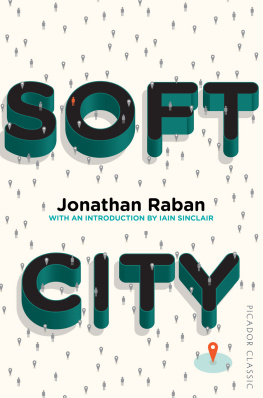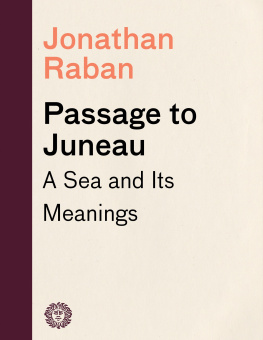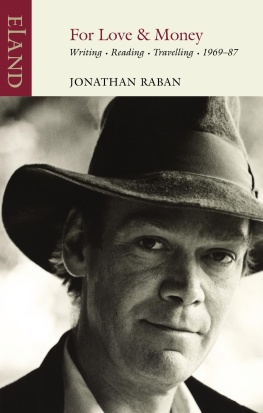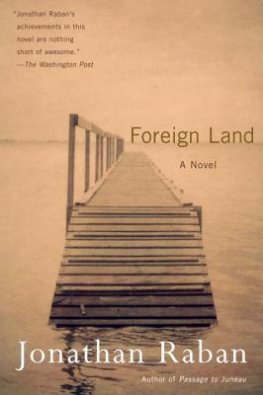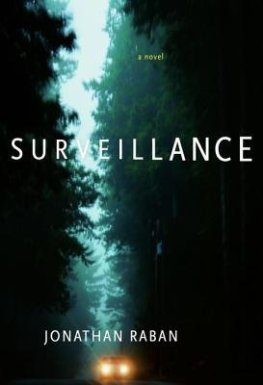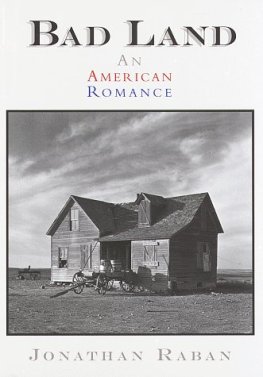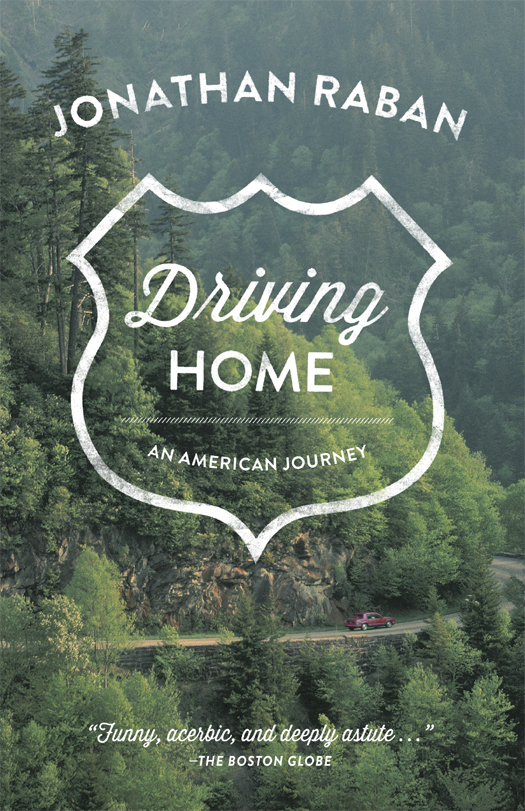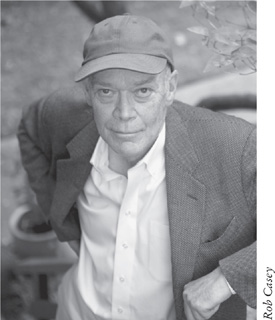
J ONATHAN R ABAN is the author, most recently, of novels Surveillance and Waxwings; his nonfiction includes Passage to Juneau and Bad Land. His honors include the National Book Critics Circle Award, the PEN/West Creative Nonfiction Award, the Pacific Northwest Booksellers Award, and the Governors Award of the State of Washington. He lives in Seattle.
Also by Jonathan Raban
Soft City
Arabia
Old Glory
Foreign Land
Coasting
For Love and Money
Hunting Mister Heartbreak
The Oxford Book of the Sea (editor)
Bad Land
Passage to Juneau
Waxwings
My Holy War
Surveillance
P RAISE FOR
Driving Home: An American Journey
by Jonathan Raban

Raban achieves the perfect blend of the historical, observational and personal for which so many strive. I loved this book.
Sara Wheeler, The Literary Review
Sampling some of everything, readers may gladly follow Raban for layers beneath the surfaces of his subjects, becoming immersed in such matters as the history of landscapes , the perils and pleasures of sailing, and assessments of authors At its best, a delight for literary-minded readers.
Booklist
Raban is at his best when treating the people, landscapes and cultures through which he is passing as if they were works of art: holding up absurdities to patient inspection, digging into their histories, forcing the complacent and skeptical to acknowledge hidden beauties. Phrase-making wit is much in evidence through these pages, and there is something refreshing about a first-rate writer whose stories are literate and sophisticated but never self-consciously literary. He knows how to capture the truth of a thing without saying it.
The Wall Street Journal
Raban knows the best essayist trusts in drift and digression and habitually adds a literary trill. He is an erudite but adaptable companion, tart and genial, promiscuous in experience yet reliable in temperament He conjures with his new home, with the Pacific Northwest, with history, poetry, geography, catastrophe subjects Raban circumnavigates with finesse, shrugging off the obvious and regularly landing us on a shore we cant quite glimpse from here.
Stacy Schiff, The New York Times Book Review
Raban plots his course through his Americana scrapbook with historical vigour and intellectual flair.
Metro
Raban opens the minds eye with ease. This American Journey is the work of a fine example of that rapidly disappearing species, the man of letters.
Pittsburgh Post-Gazette
Its a quest that Raban approaches, in these essays, with the full force of his remarkable talent, infused with the profound intellectual ease and quiet authority that only a writer with so much steadying ballast of good work as Raban has could muster. In 604 pages, not a dull moment. How does he do it?
The Evening Standard
The essays collected in Driving Home do an excellent job of fleshing out the manifold conflictsindeed violenceof the American landscape, but in the end, the dream of psychic renewal remains elusive, in large part because it is hard not to feel that the America of the past two decades, which Raban chronicles so carefully, no longer offers a sense of utopian possibility to the intelligent European mind, and Jonathan Raban is nothing if not an intelligent European mind.
The Times Literary Supplement
the elegance, wit, intensityand researchbehind Rabans work demands that the reader follow the path towards Empsonian clarity.
Oldie
Driving Home isnt just a good read, its a bunch of good reads. Its a book of important, smart work from a terrific writer who will both blow you away, and make you want to argue with him.
Crosscut
Raban [here] showcases his craftsmanship as a writer and his bona fides as an intellectual. Every word is impeccably chosen, every metaphor meticulously selected [His] virtues as a writer are virtually unrivaled when it comes to explaining our relationships with landscape and nature, and hes unrivaled, period, when describe water in all its forms, be it a placid puddle or a storm-swirled sea.
Columbia Journalism Review
The central work of Rabans life must be described as an effort to determine what America is like But along with that, the reader notes, big water draws from Raban a kind of genius for natural description.
Thomas Powers, The New York Review of Books
His prevailing voice is one of reason, civilised discourse and elegant analogy. The rational lucidity, trimmed of overt passion or ferocity, makes the rare emotional outburst more potent.
Herald Scotland
Raban provides his own peculiar and precise critique of the land he now calls home, full of cultural and historical observation and littered with his own dry, droll humour. The result is a must-read for fans of the writer, and a fine, if full, aside for fans of the USA.
Traveler
Here is another, and welcome, addition to a genre that is best described as the literature of American encounter Its hard to think of another writer who combines such a gift for the description of physical place with a deep, analytical intelligence.
The National
Driving Home is a big book but it reads as if its a short, anecdotal history of the United States from 1990 to 2000, and if you have never read a book by Raban this is a good place to begin.
The Spectator
Jonathan Raban writes about water in the way that Barry Lopez writes about snow or Wilfred Thesiger wrote about sand: its not always in the foreground of his observation, but you can sense his natural element in his whole way of seeing. [Driving Home] is also an autobiography of sorts, a memoir of the years since Raban cast himself adrift from Britain and washed up in Seattle.
The Observer
The true Raban touch here is that he brings his deep reading of American history to play, and manages to interweave his personal journey with essays on the explorers Lewis and Clark, who made a similar journey at the request of President Jefferson. It takes a passionate history buff to note how many of Americas virtues and vices have been present since independence and before, and a skilled raconteur to make us feel that passion. Its a fine ride.
The Sunday Times
The master of the margins, Raban is an inspired observer and a natural writer. He has always understood the US, and since he left his native England to settle in Seattle he has never lost his understanding of the US or his outsiders fascination with it. Six hundred pages of pleasure, including Last Call of the Wild.
Irish Times
Raban writes with characteristic ease and insight [describing], among other things, his attempts to get to know his adopted home and its warring tribes.
The New Yorker
A sterling collection. An incomparable travel writer, in this book Raban supplies myriad observations about his adopted home, but also on the larger American landscape, riffing on the West, urban architecture, national political trends, the dot-com economy, and most sublimely, about nature.



